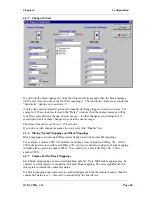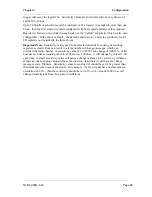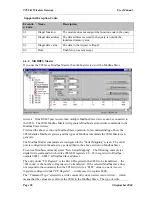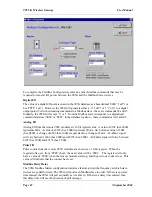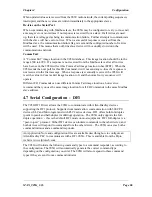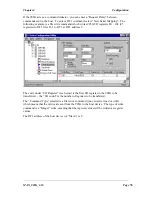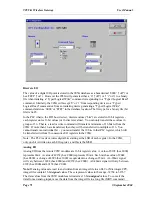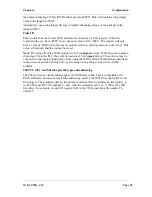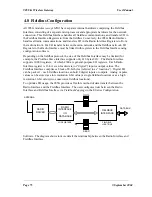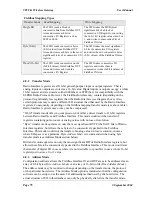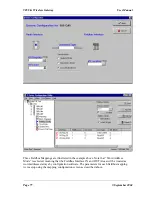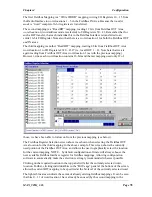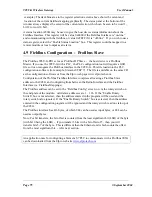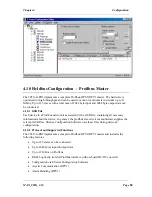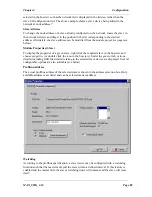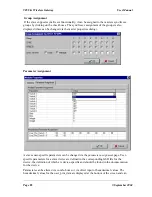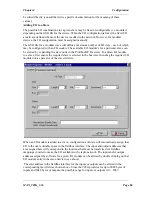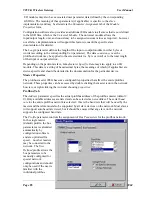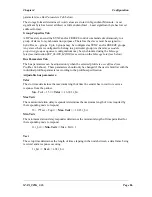
905U-G Wireless Gateway
User Manual
Page 73
©September 2004
4.8
Fieldbus Configuration
All 905G modules (
except MD1
) have separate internal hardware comprising the Fieldbus
Interface, consisting of a separate microprocessor and appropriate hardware for the network
connection. This Fieldbus Interface handles all fieldbus communications, and transfers I/O in
the Fieldbus Interface Registers to/from the fieldbus. Conversely, the 905G Radio Interface
handles all radio communications, and transfers I/O in the Radio Interface Registers to/from
the radio network. For I/O transfer between the radio network and the fieldbus network, I/O
Registers in the Radio Interface must be linked with registers in the Fieldbus Interface using
configuration software.
Depending on the fieldbus protocol, the size of the Fieldbus Interface may be limited (for
example, the Profibus Slave interface supports only 416 bytes I/O). The Radio Interface
supports 10,000 registers, of which 4300 are general-purpose I/O registers. Each Radio
Interface register is 16-bit, even for discrete (or “digital”) input or output values. The
Fieldbus Interface comprises a block of 8-bit bytes (referred to as “locations”). Digital I/O
can be packed - each fieldbus location can hold 8 digital inputs or outputs. Analog or pulse
values can be stored as a low resolution 8-bit value (a single fieldbus location) or as a high
resolution 16-bit value (two consecutive fieldbus locations).
To optimize I/O usage, the 905G provides a flexible method of data transfer between the
Radio Interface and the Fieldbus Interface. The user configures
links
between the Radio
Interface and Fieldbus Interface via
Fieldbus Mappings
in the ESeries Configuration
Software. The diagram shows in more detail the relationship between the Radio Interface and
Fieldbus Interface.
WRITE
RADIO
INTERFACE
I/O
DATABASE
I/O REGISTERS
FIELDBUS
LOCATIONS
READ
FIELDBUS
INTERFACE
RADIO
DRIVER
DATA BUS
ANTENNA


